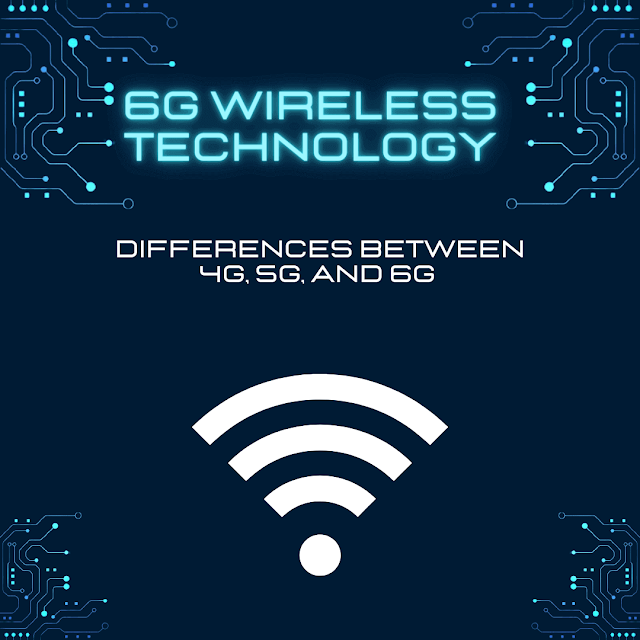Introduction:
The ever-evolving realm of wireless technology continually ushers in new generations of cellular networks, each representing a leap forward in capabilities. While the nascent 5G technology promises remarkable enhancements in speed, latency, and capacity over its predecessor, 4G, our curiosity inevitably turns towards the horizon of 6G.
What sets apart 6G from 5G, and what technological marvels can we anticipate from this forthcoming iteration of wireless innovation?
Key Differences Between 4G, 5G, and 6G
Here is a table summarizing the key differences between 4G, 5G, and 6G wireless technology:
| Feature | 4G | 5G | 6G |
|---|---|---|---|
| Speed | Up to 100 Mbps | Up to 20 Gbps | Up to 1 Tbps |
| Latency | 50 milliseconds | 1 millisecond | 0.1 millisecond |
| Frequency bands | Sub-6 GHz | Sub-6 GHz and mmWave | Terahertz |
| Network capacity | Limited | Massive | Billions of devices |
| Use cases | Mobile broadband, voice communication | IoT, AR, VR, autonomous vehicles | Holographic communication, tactile internet, brain-computer interfaces |
Evidently, 6G is poised to deliver substantial improvements in terms of speed, latency, and capacity when juxtaposed with its predecessors, 4G and 5G. These advancements are poised to unlock an extensive array of unprecedented and captivating applications, including but not limited to:
Holographic Communication:
This cutting-edge technology promises to facilitate interpersonal interactions in a virtual realm, simulating the sensation of coexisting within the same physical space.
Tactile Internet:
Envisioned as a groundbreaking leap, this innovation aims to bestow users with the ability to perceive tactile sensations through a virtual milieu, transcending conventional boundaries.
Read More: Google Ai Search Roll-Out Publicly
Brain-Computer Interfaces:
This visionary advancement holds the potential to enable users to exert control over devices through the sheer power of their cognitive faculties.
The Futuristic Landscape of 6G Wireless Technology:
6G, though currently in its embryonic stages of development, is slated for widespread adoption around the 2030s. With the progressive rollout of 6G networks, we anticipate a diverse spectrum of pioneering applications that harness its remarkable velocities, minimal latency, and unparalleled capacity.
In Conclusion:
6G wireless technology embodies the forthcoming zenith of wireless connectivity, poised to deliver substantial enhancements over its predecessors, 4G and 5G. Its remarkable speeds, minimal latency, and expansive capacity are set to unlock a myriad of novel and thrilling applications, including holographic communication, tactile internet, and brain-computer interfaces.

